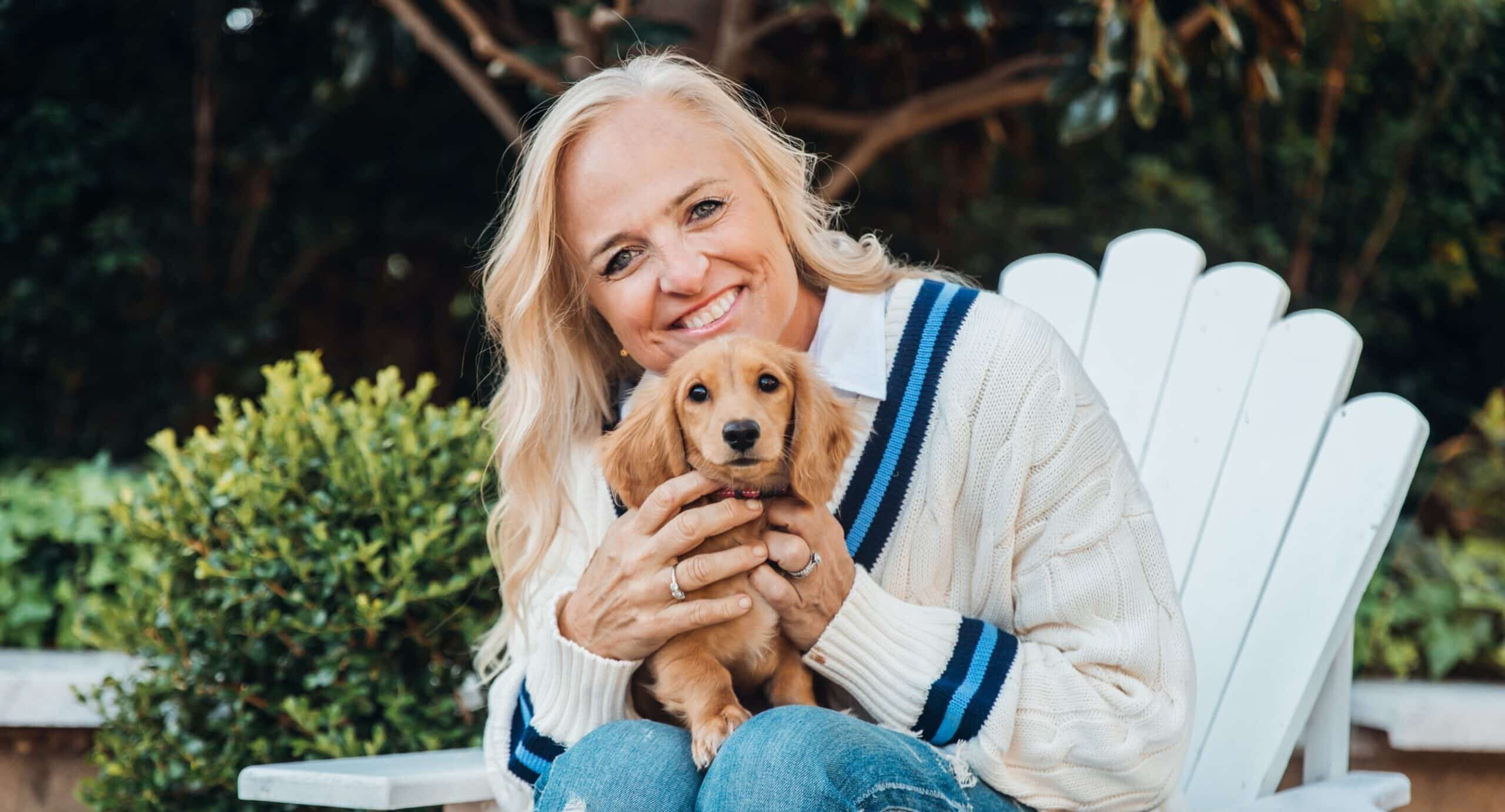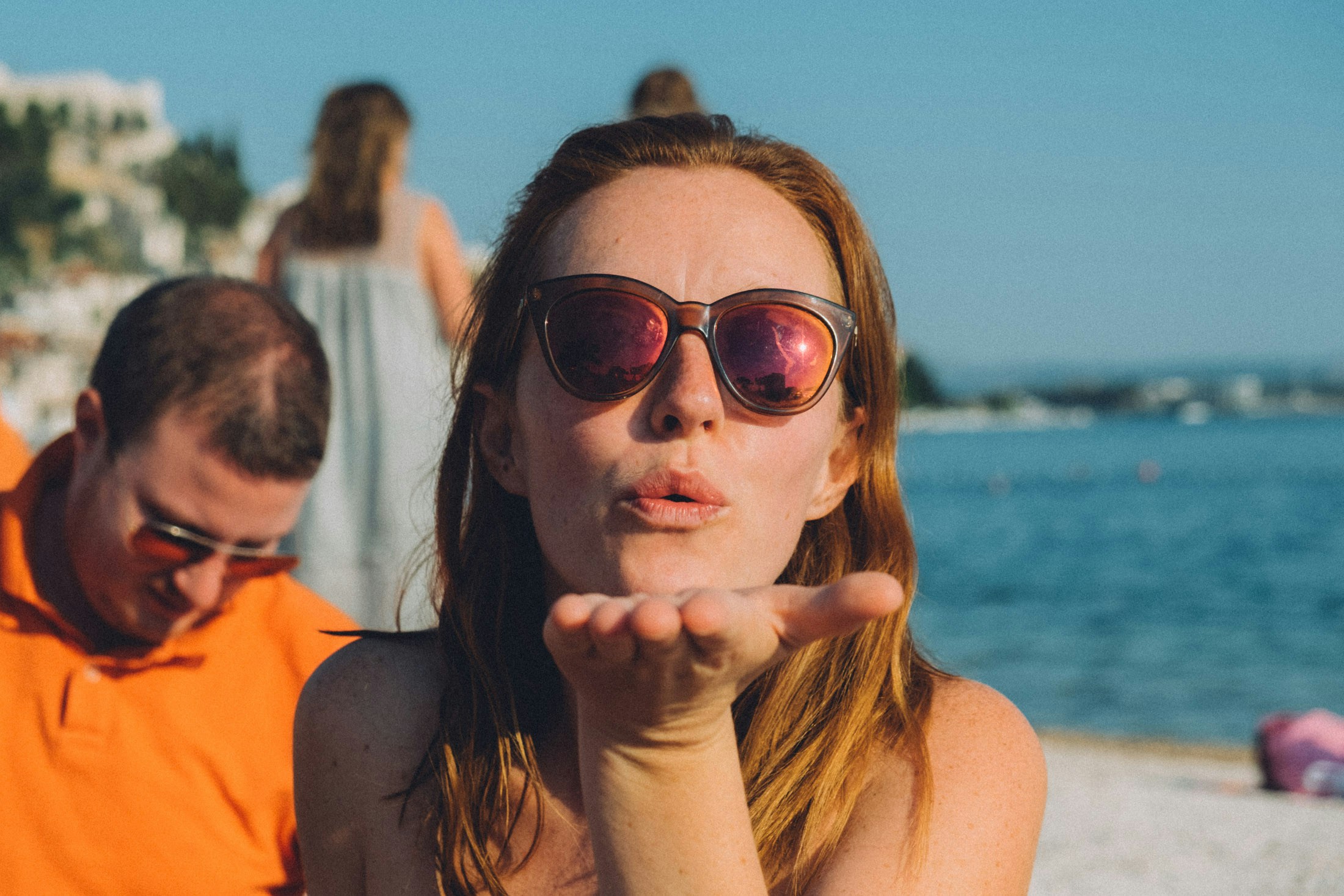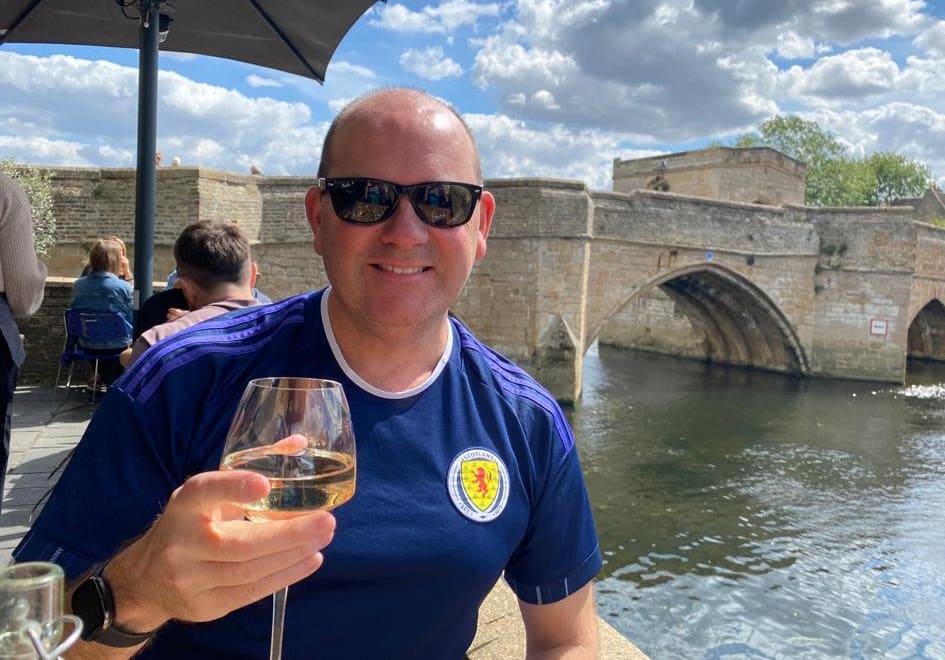
How alcohol influenced my life and my people: Kerry’s story for National Sorry Day
Aboriginal and Torres Strait Islander people should be aware that this article may contain images of people who have passed away.
This week we have a guest blog from Kerry. Kerry is a proud Wiradjuri woman from Condobolin, New South Wales. She's a personal friend of our Health Promotion Manager, Sabrina, who reached out to her to ask if she'd be willing to share her story about her life and her relationship with alcohol, in light of National Sorry Day, on Sunday May 26.
On 26 October 1972, just 5 years after Aboriginal people were counted as part of the census and no longer seen as part of the flora and fauna in Australia, I was born to an alcoholic mother who lived on a mission in remote NSW. I was removed from her care before I was released from hospital; thank God for my beautiful grandmother who loved and cared for me. She loved and cared for me in a home that my two violent alcoholic uncles lived in; it was the only life I’d ever known. When invasion happened, pubs were set up within weeks. Aboriginal people were forced off their land and forced to help build what is now known as Australia. They weren’t seen as citizens back then so they were never given a salary; they were paid with alcohol and tobacco and so began my people’s problems with alcohol.
Statistics say, contrary to public perception, fewer Aboriginal people drink alcohol compared to non-Aboriginal people. The media reinforce stereotypes and ignore Aboriginal people’s efforts to keep communities dry. However, the trauma suffered by my people and the effects, continue to be felt today and Aboriginal people drink at more risky levels, putting them at high risk of experiencing alcohol-related harm.

I remember, growing up, I often thought that when I had kids, I would never drink and never have them around alcohol. At 17 I fell pregnant to the local hero footballer (also Aboriginal) who was an alcoholic. I asked him not to come home when he was drinking, (at least he listened to me) and so begins my life as basically a single mum. I have another 2 kids to him, and after 20 years the unthinkable happens, while he was out on one of his weekend binges, a woman falls pregnant to him. My world (even though it wasn’t perfect) comes crashing down. I find the strength to leave him – my youngest was 9 years old. Now a single mum with this new-found strength (but still very angry), I started to ask my grandmother about her childhood and why she never shares her stories. I began to hear how she had to live her life hiding her light-skin kids at the mission she brought them up on, because she had witnessed her two older brother’s kids forcibly removed from their family homes. I was told about how they worked (mainly as domestic servants) and how the government ‘took care’ of their money, taking out their rent and giving them food vouchers that they had to pick up from the police station, then the remainder was put into ‘savings’ that they were never to see. Again, and contrary to public perception, Aboriginal people were never given anything free. It wasn’t until now I understood why she hid me under the bed when the ‘welfare man’ come around and why my upbringing was so different to my white friends.
Hearing these stories, and along with the anger I still had from my ex-husband and the death of my beloved grandmother, when I was 38 years old I have my first drink of alcohol. Although I didn’t drink through the week, on the weekends I began to binge drink; it felt great, and all these memories were so distant, but soon I’d start having blackouts and not remember what I was doing, and it started to affect everyone that was important to me and my health.
Kerry is in the middle, next to her Grandmother
Thankfully I had some strong people around me who I could talk to. My doctor wanted to put me on anti-depressants, but I was always anti medication (maybe it was my subconscious telling me this is what I was trying to do with alcohol too) so I decided to take control, I joined the gym, started eating healthy. I did give up alcohol completely for 3 years after this. I moved to the city, worked my way into a senior public servant position and completed a degree at Sydney University. My youngest child, my son, was contracted to the NRL and is now happily completing a carpentry apprenticeship. I have two beautiful grandkids who have parents that do not drink and none of our lives revolves around alcohol. As a proud Aboriginal woman this is one of my greatest achievements and I now work with an Aboriginal organisation advocating for the rights of Aboriginal children, families and communities.











I am honoured to have heard your story Kerry. Deeply moving and to think of the level of strength you have found is inspiring. It is shameful that your history has been written out or changed in history books but it is perhaps slowly coming back to life again with stories such as yours. Coming from Ireland, we too have our history of trauma and tragedy that was forced on the Irish people, so while very different to your story, your words resonants with me. May your continued journey and road be a happy and blessed one.
Wow!!! What a story. You are inspiring Kerry. Thank You.
You are awesome , Kerry. A wonderful story.
Thank you for sharing your story Kerry.
Thankyou for sharing. A story I will be sure to take some time to think about on Sunday on Sorry Day.
An insightful and inspirational story. Thank you for sharing.
Thank you for sharing your story Kerry we (non indigenous people) need so much more education about alcohol abuse across the whole nation and not use the indigenous experience as an excuse for self righteous ignorance. I will one day gather strength and courage such as yours to remove alcohol from my life.
Wow Kerry. What an amazing strong woman you are. So proud of you. You beat this alcohol addiction and whipped the stereotype. Bless you dear heaty
Powerful story. Thanks for sharing
I loved reading your story Kerry, what a beautiful grandmother and how inspiring x
Thank you Kerry for sharing your story. You are so strong, even though it must have been extremely difficult…and I’m so very sorry for the loss of your Grandmother.
Thank you for sharing your story Kerry. You are an amazingly strong woman and your family is blessed to have you guiding them. I’m sorry for the suffering of your people as a result of the invasion of your lands 200+ years ago.
Kerry I, and other people I know, are aware and very regretful of the long standing pain and many humiliations experienced by Aboriginal peoples as a result of Europeans coming to this country. I felt for you in reading of your setbacks but also your great successes. You’re an inspiration to me, another woman struggling with various challenges in life. Best wishes to you and your family for many happy times ahead.xx
Kerry, you are such a brave and loving woman. Your children and grandchildren are blessed to have you as their role model. We are blessed that you shared your story with us. It makes me realise our damaging the actions of our elders can be, even if they themselves do not have that intention.
Congratulations Kerry on your efforts for yourself , family and others.That drink is a real distraction to life..Good Health.Regards Gary Y
Thanks for sharing your story Kerry. I was raised by my grandmother too. Very sorry for loss, and I admire your bravery in sharing your story to a national audience. Maybe the more real contact we have with Indigenous people, the more we will reject the media’s dehumanisation of them.
Kerry , I love the picture of you as an innocent child full of potential with your beautiful grandma . But the most heart warming is your story of strength and resilience you are a true inspiration. With Sorry day coming up I cannot express the sadness of what has been done to so many beautiful, inspiring people such as yourself . We all have so much to learn . Respect x
You are an inspiration to your family already Kerry and now, to every person who has read this piece. Thank you.
Thankyou Kerry – your story is humbling and inspiring
What a wonderful inspirational story ! Thank you .
Thank you Kerry XX